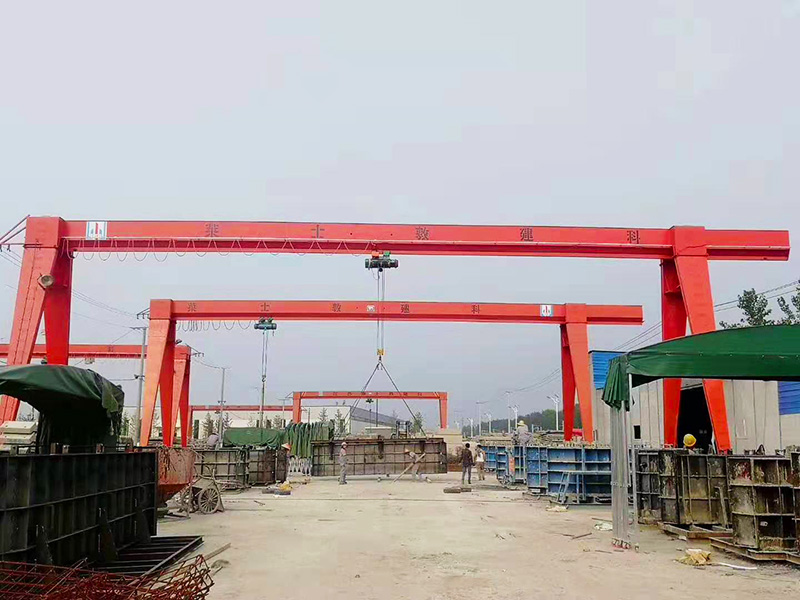
Gantry crane
1. Brief introduction:
The gantry crane is used together with the hoist. It has a small windward face. It is a light-duty gantry crane in open places and windy areas. It has two operation modes: air operation and ground operation. Lifting capacity gn=2t-20t, span 10m-30m, working environment below +40 ℃, working level 25%, wind pressure not greater than 125pa.
2. Technical features:
The transmission adopts a new generation of three in one system, the electrical appliance adopts contactless module speed regulation control, and can realize micro speed and double speed approaching frequency conversion functions, so that the operation and lifting inching performance are particularly stable. It is equipped with overload alarm, oblique lifting, secondary protection against hook bumping, missing item overcurrent and other protection, and the console (handle) adopts 12V voltage to realize the multi-functional protection of the hoist crane from the surface. When the voltage is within 380V + 5~-10%, the electric control can be used for "2million" times for a long time.
3. Selection principle:
Use industry, starting and inching times /1h The practical time per day is h, which must be indicated: light crane, starting and inching are gn/0-80 times /1h, gn/2- 40 times /1h, gn/1-15-20 times /h, high temperature 50 ℃ and harsh environment times /1h ÷ 2.
4. Precautions:
① At the operation site, when the crane stops working, the user should lock the crane in time.
② There is no wire above the main switch of this crane. It is strictly prohibited to lift high-temperature molten liquid, flammable, explosive, corrosive, overloaded, dust and other dangerous operations.
③ The total length of the outer suspension of the gantry crane is less than 1/3 of the midspan 90% of GN at the outer suspension limit, and the crane can run only when the weight is moved into the outrigger. The weight GN that must be operated by the crane outside the leg shall be reduced by 10-20%. When the external suspension exceeds 1/3 of the midspan, GN shall be reduced by sections. Under the above conditions, the weight can only be operated when it is close to the outrigger crane. Small spans should not be run outside the legs.


 2022-4-6 14:09:04
2022-4-6 14:09:04

